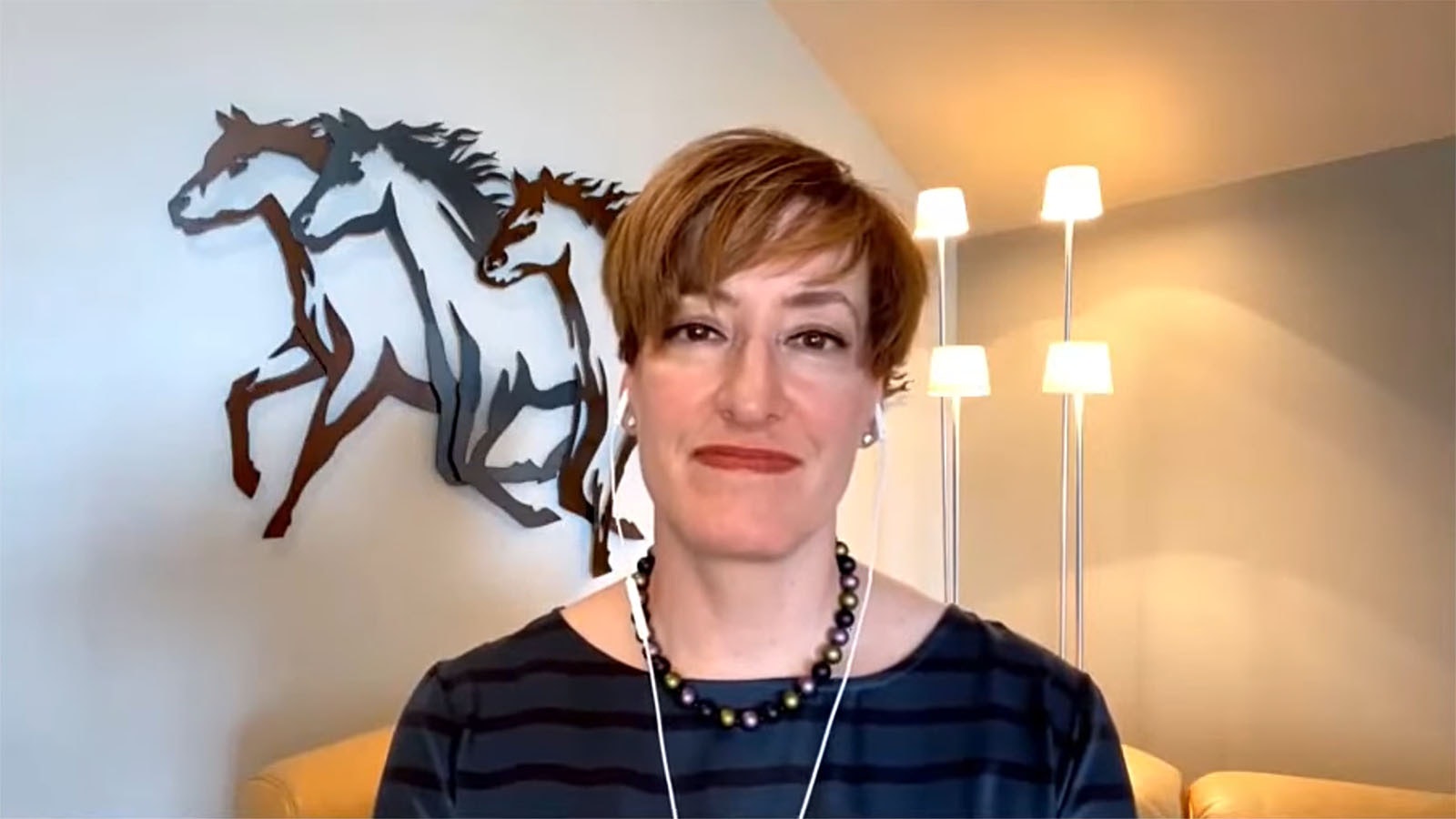Custodia Bank is trying for a jugular strike in its lawsuit with the Federal Reserve, asking that the judge in the case find that the Wyoming state-chartered bank’s application for a master account was not conducted in the fair and impartial manner that the law requires.
The filing is what’s known as a summary judgment, used in instances where the parameters of a case are so clear and compelling that a trial is not needed for a judge to make a ruling.
A Custodia Bank spokesman told Cowboy State Daily that Custodia Bank’s motion was based on facts revealed during the discovery process, which showed several instances where the Federal Reserve Board and the White House had inserted themselves into a process that was supposed to be overseen by the Kansas City Federal Reserve Bank.
In many cases, the federal agency simply took the Kansas City Fed’s conclusions and rewrote them to their opposite, without any supporting documentation to justify the changes, according to court documents Custodia has filed in the case.
For example, where the Kansas City Fed had concluded Custodia Bank’s capital was “adequate,” the federal reserve instead rewrote the state-chartered bank assessment to say there was a “lack of a robust capital requirement framework.”
“Strong” risk management, meanwhile, turned into “significant risk management gaps” and “liquidity risk is relatively low” became insufficient “liquidity risk management processes.”
An assessment that Custodia’s management experience was “impressive” and “extensive” transformed to a “lack of collective depth of relevant banking experience.”
Federal Reserve Examiner Among Custodia Advisors
That last example has been particularly irksome to Custodia Bank, given that bank CEO Caitlin Long is herself a Wall Street veteran with more than two decades experience.
Custodia Bank described it as “arbitrary” and “odd” in court documents to make such a claim, given that 100% of the Wyoming digital asset bank’s senior management has decades of relevant banking experience.
“System staff did not raise this issue with Custodia until the issue was highlighted in the 86-page order,” a letter outlining Custodia Bank’s complaints to the Office of the Inspector General states.
The letter, which is part of the court record, was written by Katie Cox, a 32-year bank examiner with the Federal Reserve who retired as manager of the mergers and acquisitions section at the Board of Governors in Washington. Cox is a bank regulatory consultant who has been serving as advisor to Custodia Bank. In the letter, Cox outlines 23 complaints and irregularities.
“Regardless of the outcome of Custodia’s situation, we urge the Office of Inspector General to consider whether this approach by the Federal Reserve system to require ‘relevant banking experience’ might actually be a form of systemic discrimination,” Cox wrote in the letter. “That perpetuates the woeful under-representation of protected classes among owners of banks in the United States and subtly discourages protected classes from attempting to form de novo banks.”
A de novo bank refers to a newly opened bank.
Cox went on to write that there are just 13 women-owned banks in the United States. That puts the total number of women-owned banks at 0.3% of all the 4,236 banks in America.
“For the Federal Reserve to engage in disparate treatment of a woman-owned bank at all — much less to the magnitude of numerous breaks with policy, procedure, normal practice and due process that Custodia has described in this letter — is disturbing,” Cox wrote.
Arbitrary Edits Not Only Irregularities
The arbitrary edits, where the Federal Reserve Board simply rewrote what the Kanas City Federal Reserve Board had concluded to read the opposite, were not the only irregularities revealed by the discovery process in Custodia Bank’s lawsuit.
Evidence Custodia Bank found during discovery suggests that the Custodia master account denial — an 86-page document that Custodia Bank said in court documents is 40% longer than any other such denial in recent Federal Reserve history — included materials from a lobbying group for the largest incumbent banks in the United States.
The rational those banks used completely mischaracterizes Wyoming’s digital asset laws, Custodia Bank wrote in a brief supporting its motion for summary judgment.
Wyoming’s digital asset laws were written with the cooperation of the Kansas City Reserve Bank. Cowboy State Daily has been told by Wyoming state officials that state officials had more than 100 meetings with the Kansas City Reserve Bank while developing the Special Purpose Depository Institution or SPDI laws.
At the request of the Federal Reserve Bank of Kansas City, lawmakers even removed a portion of the SPDI law that would have compelled Wyoming’s attorney general to defend the state’s new law if necessary.
Lawmakers were told at the time there was no need for such a clause, and that the Kansas City Federal Reserve had no plans to block Wyoming’s state-chartered SPDIs.
To date, none of Wyoming’s four SPDI institutions have been granted a master account with the Federal Reserve.
A Sudden Change In The Weather
Everything seemed to change suddenly in January 2023, Custodia Bank said in court documents.
While Custodia Bank had previously been told there were no showstoppers in their application, suddenly there were show-stoppers everywhere — 86 pages of them.
The document rejecting Custodia Bank’s application for a master account cited not-yet-enacted policies, which Cox described as a significant break from the normal, methodical approach used by the Federal Reserve.
“It’s questionable whether a yet-to-be-enacted policy that did not technically apply to the applicant could be cited in a board order as a reason for denial of a pending application,” Cox wrote.
It’s also curious, Cox went on to say, that the board’s 86-page rejection was issued in lockstep with a new crypto policy statement from the White House and the Board of Governors.
Many deadlines were also missed along the way during the two-year period following Custodia Bank’s application, and irregular procedures were followed. The Federal Reserve, for example, is supposed to conduct a targeted examination of a de novo bank seeking to become a state member within the first six months of its formation.
That examination isn’t necessarily supposed to be full scope. It’s a targeted look at a new bank that doesn’t yet have a track record.
But in Custodia Bank’s case, the exam was full scope. That meant the Federal Reserve couldn’t, as is required, compare Custodia’s operating results for consistency with its projections, since none of the data was actually available yet.
All the irregularities taken together are particularly troubling, Cox added, given that Custodia Bank has been at the table from Day One, seeking to operate as a legally authorized entity. Not only that, but Custodia Bank officials have been active in providing information about concerning activities in the crypto sector.
Long, Cox wrote, had been providing law enforcement with evidence of crimes committed by FTX well before it imploded. There are also numerous emails after the fall of FTX to examiners, explaining what to look for as the situation, and its impacts on banking, continued to unfold.
In one of those emails, Long wrote to a Mr. Van Der Weide with the Federal Reserve, sending it just minutes before Custodia Bank’s master account was again denied.
“It seems you believe crypto is a threat to banking system stability,” Long wrote. “Much of it is, but some of it is not — and that’s where Custodia intends to do business.
“I believe regulators could truly benefit from the knowledge of responsible players who understand how to distinguish the wheat from the chaff, and who want the chaff to burn on a raging pyre before it hurts the banking system and consumers again.”
Long goes on to say that few people saw what was coming well before FTX imploded. She herself was one of those few.
“Aren’t you curious how?” Long wrote. “That was no accident. And, among those few people, even fewer would be at the table with you — but we are, and we’ve been trying hard to work with you.”
Cox ends her letter to the Office of the Inspector General by concluding that something went “very wrong” with the Federal Reserve’s process, and urges them to investigate why Custodia Bank didn’t receive the due process it should have.
Renée Jean can be reached at renee@cowboystatedaily.com.





